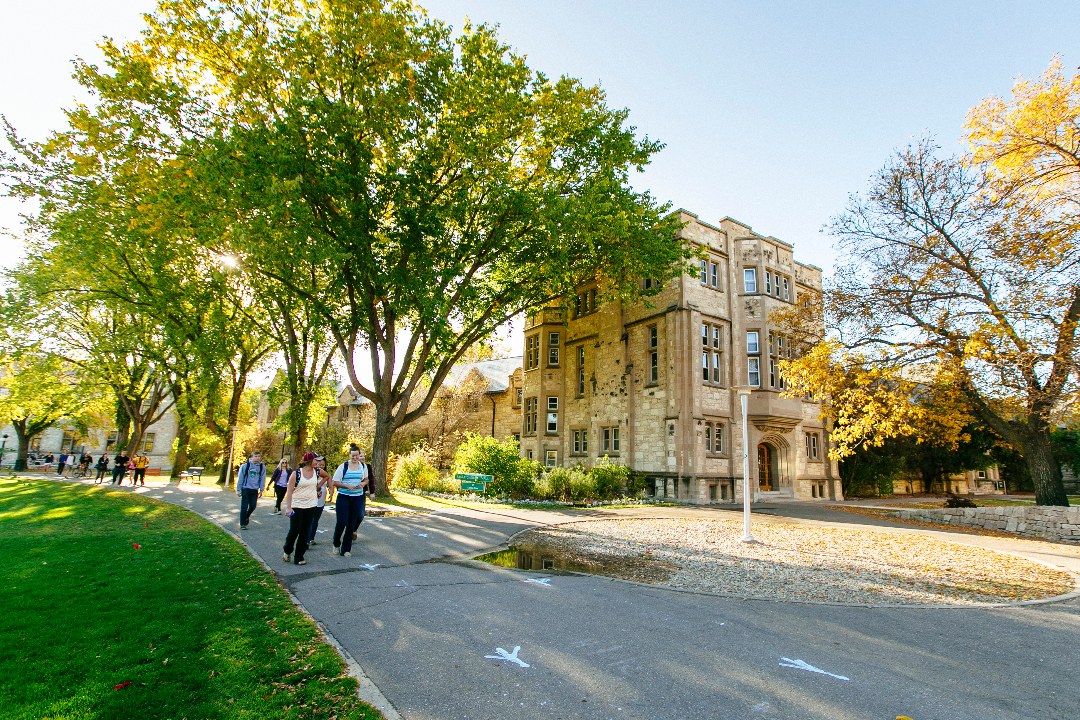
USask launches Period Equity Project
SASKATOON – The University of Saskatchewan (USask) has launched a new initiative to enhance menstrual equity on campus.
Through the Period Equity Project, free menstrual hygiene supplies will be made available to all members of the USask community who need them. Dispensers stocked with free tampons and pads will be available in more than 70 women’s, gender-neutral, and men’s washrooms in various USask buildings.
“Every person who needs menstrual products should have access to those products. The USask Period Equity Project is about helping make that happen,” said Dr. Airini (PhD), USask’s provost and vice-president academic.
“Ensuring our students, faculty, and staff have the resources they need to fully participate in campus life is vitally important,” Airini said. “This goal is supported by our University Plan 2025, which outlines USask’s bold ambition to be the university the world needs.”
People who menstruate can face challenges related to inadequate or inequitable access to menstrual hygiene products. This inequity is often linked to financial and social barriers and can be associated with ongoing taboos and stigma related to menstruation. For example, UN Women notes that 12.8 per cent of women and girls worldwide live in poverty, and the cost of menstrual products and added taxes leave many without ways to safely manage their periods.
According to a recent survey by Plan International Canada, a global humanitarian and development organization dedicated to advancing children’s rights and equality for girls, 25 per cent of women who menstruate in Canada have had to choose between purchasing menstrual products and other essential items, such as food. The survey also showed that 82 per cent of Canadian respondents who menstruate believe that period products are expensive. More than 82 per cent of women in Canada support access to free period products in public washrooms, while 95 per cent of women ages 18 to 24 agree, according to the survey.
Using an evidence-informed approach, the Period Equity Project was launched at USask by the Office of the Provost and Vice-President Academic following consultation with students and student groups on campus.
“We have input from members of our USask community that enhancing menstrual equity is important to them,” said Tasnim Jaisee, the equity, diversity, inclusion (EDI) project specialist in the Office of the Provost and Vice-President Academic. “The Period Equity Project will ensure that menstrual supplies are widely available to those who need them on our campus.”
Conversations leading to the Period Equity Project first began between Airini and the University of Saskatchewan Students’ Union (USSU) during the 2021/22 academic year, when Jaisee, a USask College of Arts and Science student, served as the USSU president. Jaisee, who continues to study at USask, now facilitates the Period Equity Project through her role in the Office of the Provost and Vice-President Academic.
The installation of the free menstrual hygiene supplies in USask washrooms began during the summer. This fall, for the start of the 2023/24 academic year, period products will be available in washrooms in the following locations: Health Sciences Building; Leslie and Irene Dubé Health Sciences Library; Gordon Oakes Red Bear Student Centre; Arts Building; Edwards School of Business; Law Building; Education Building; Thorvaldson Building; W.P Thompson Biology Building; Physics Building; Agriculture Building; John Mitchell Building; Archaeology Building; Engineering Building; Physical Activity Complex (PAC); St. Thomas More College; Murray Building; Western College of Veterinary Medicine; Marquis Culinary Centre; Place Riel food court; GSA Commons; Kirk Hall; Diefenbaker Building; Peter MacKinnon Building; Geology Building; Collaborative Sciences Research Building; and Toxicology Building.
Dr. Patti McDougall (PhD), USask’s deputy provost, said the Period Equity Project supports USask’s goal of building an inclusive and nurturing learning environment. She noted that the initiative also demonstrates the positive outcomes that occur when students and USask leadership work together, adding that the Period Equity Project aligns with the USask plan titled Fostering Tomorrow’s Leaders: Learning, Teaching and the Student Experience 2019-2025.
“One of the five key commitments championed in the plan is co-creating a climate of inclusion, empowerment, and support,” said McDougall, the EDI lead for the provost’s portfolio. “The Period Equity Project is one way we can work together to achieve this important goal.”
More information about the Period Poverty Project is available online at students.usask.ca.
-30-
For media inquiries, contact:
Brooke Kleiboer
USask Media Relations
306-966-1388
brooke.kleiboer@usask.ca

